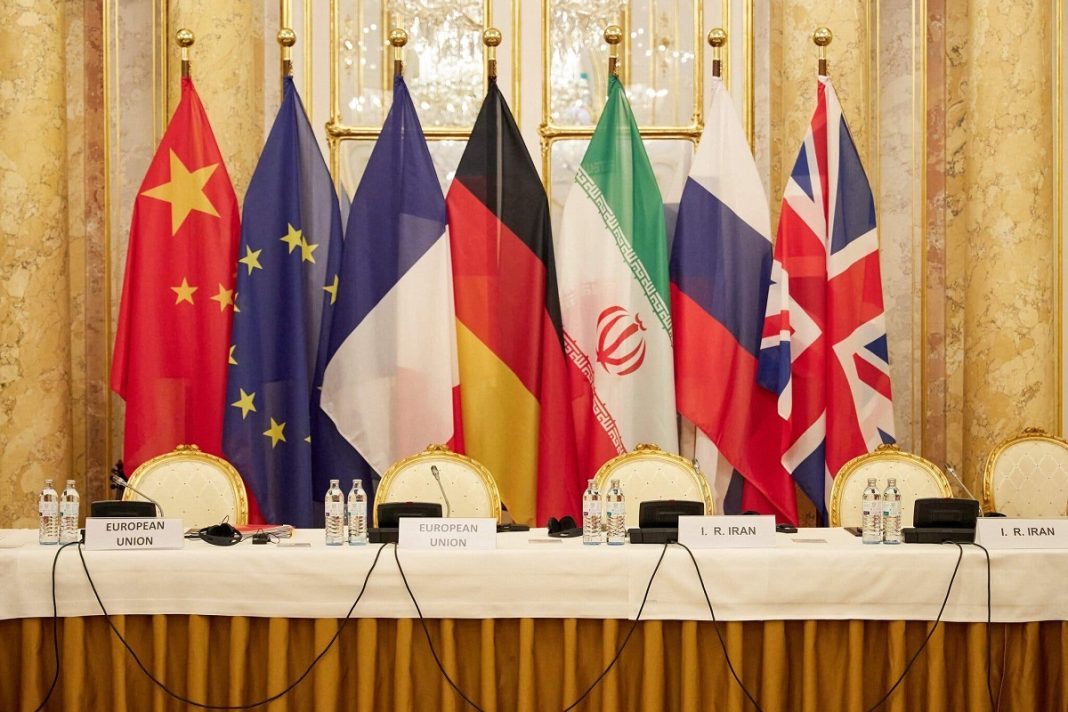On Twitter, Mikhail Ulyanov reacted to a question by a user about the reports and said, “It is not true, of course, because the draft decision on restoration of the #JCPOA (Joint Comprehensive Plan of Action) was elaborated collectively by all participants in the #ViennaTalks, including Russia and China.”
Contrary to the claims, he said the EU, as the coordinator of the negotiations, “introduced recently just a few useful amendments which we fully support.
In an earlier tweet, the Russian diplomat hinted optimism and said, “there are no unresolvable issues on the agenda. Despite a few remaining differences, the negotiators have all chances to fulfil their task successfully.”
All eyes are on Vienna’s Palais Coburg hotel, the venue of the talks, where delegates from Iran, the US, the EU, Russia and China have been holding a flurry of meetings to help make Washington remove anti-Iran sanctions and return into compliance with the JCPOA.
For the first time since last March, all parties involved in the agreement, namely Iran, Russia, China, France, the UK, and Germany, are meeting, in addition to the indirect participation of the US. The EU also serves as the coordinator.
‘Chances of deal 50-50; caution required’
Commenting on the process, an adviser to the Iranian negotiating team in Vienna, Mohammad Marandi, confirmed in an interview with Al Mayadeen that “overall” progress has been made during the Vienna talks, but no final agreement has been reached and “caution is required.”
There are certain issues that need to be resolved between the two countries otherwise “we cannot have an agreement,” he said.
He said “all of Iran’s requests came within the joint action plan,” and that they do not breach the agreement at any point.”
Marandi explained, “The issue of the Islamic Revolution Guard Corps (IRGC) being on the US ‘foreign terror’ organizations list was never a pre-condition for the nuclear deal with Iran.”
“I do not know if we will reach an agreement, and the chances of reaching it are 50%. What is important for Iran is to see progress, and as long as progress continues, negotiations will continue… and what concerns us is reaching a fair agreement,” he said.
The Iranian advisor added, “Iran needs to make sure that there are no loopholes in any agreement that the Americans can use tomorrow against the Iranians,” given the history of US breaches of the JCPOA.
‘Decisive hours in Vienna’
Meanwhile, Behrouz Kamalvandi, the spokesman for the Atomic Energy Organization of Iran, is also in Vienna for talks on the differences with the International Atomic Energy Agency (IAEA) over the so-called Safeguard issue.
Speaking to reports on the sidelines of the talks, he said Iran’s experts were in talks with the EU’s coordinator, Enrique Mora, over the matter and that the progress was “not bad.”
An Iranian diplomat also told IRNA in Vienna anonymously that the so-called Safeguard issues had been brought against Iran “under political pressure” and were thus political in nature, adding that those issues should not be used as a pretext for exploitation in the future.
“The hours are decisive in Vienna and the trust of the Iranian side should be won [by the other side] at the earliest,” the source said.
Iran, China FMs discuss Vienna process
In a phone conversation with his Chinese counterpart, Wang Yi, on Saturday, Iranian Foreign Minister Hossein Amirabdollahian highlighted Iran’s dynamic efforts to help pave the way for a “lasting and strong” deal.
He emphasized the need for the US to, in turn, issue a “realistic reaction” to Iran’s constructive initiatives.
Wang also voiced support for the continuation of the talks and for Tehran’s approach to the talks, expressing hope that the diplomatic efforts will bear fruit.
